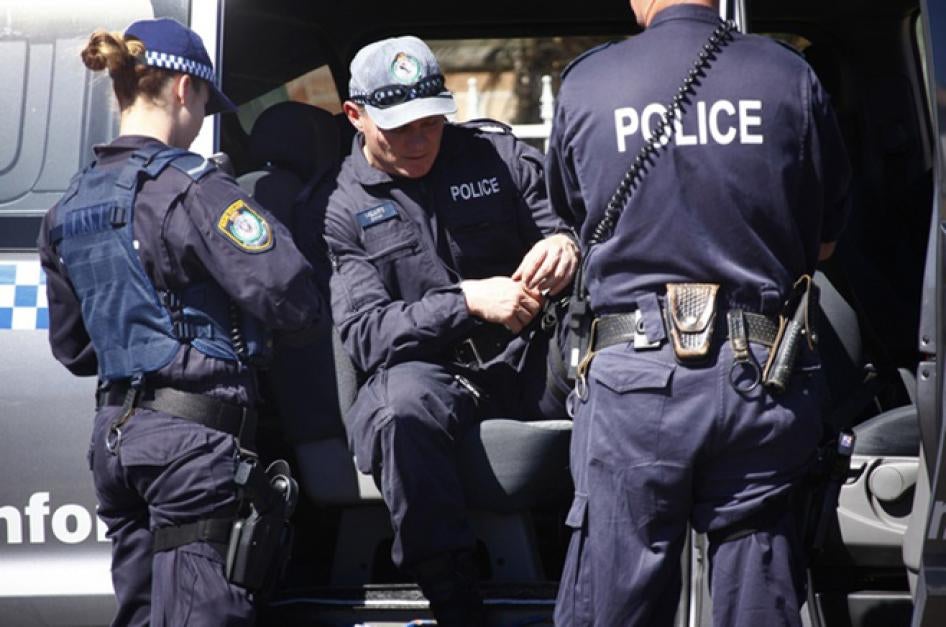On November 22, the Australian parliament passed legislation that will extend control orders to children as young as 14, becoming the first Western country to explicitly do so. Legislation in Australia in 2005 established special mechanisms known as “control orders” that have allowed detention or extreme limitations on designated suspects’ movements, communications, or livelihoods, with the aim of preventing future terrorist activity. Court-ordered restrictions under control orders can include electronic tagging, curfews, and requirements to report to police, and restrictions on using specified technologies such as the internet and on attending certain places and associating with certain people.
The changes were largely in response to the murder of police accountant Curtis Cheng by 15-year-old Farhad Khalil Mohammad, an allegedly radicalized Muslim teenager. They lower the minimum age from 16 to 14, impose serious restrictions on children suspected of involvement in terrorism without charging them with an offense, and follow Australia’s increasing tendency towards enacting counterterrorism legislation that incrementally chips away at fundamental rights.
Human Rights Watch has previously raised concerns about control orders because they can be imposed on individuals in a cumulative manner, amounting to unlawful deprivation of liberty, without ever charging them with an offense. This is particularly concerning given the vulnerability of children. The Convention on the Rights of the Child, which Australia has ratified, states that no child shall be deprived of his or her liberty arbitrarily. This law will allow control orders to be imposed on children for periods of up to three months, but can be renewed indefinitely. A breach of an order can result in up to five years’ imprisonment.
Noting the vulnerability and impulsiveness of adolescents, Australia’s National Children’s Commissioner Megan Mitchell raised concerns that “imposing control orders on an already disaffected young person could have the reverse effect, effectively shutting down communication avenues.” The restrictions may further alienate children who are isolated and disaffected.
The revised law, following recommendations from the Parliamentary Joint Committee on Intelligence and Security, states that in determining the restrictions, a primary consideration must be the best interest of the child. However, the Riyadh Guidelines, adopted by the United Nations General Assembly in 1990, makes clear that children be afforded additional protections and that “formal agencies of social control should only be utilized as a means of last resort.”
Governments have a responsibility to protect their citizens. But they need to do so in a manner that also ensures that the fundamental rights of all are respected, including children’s.









